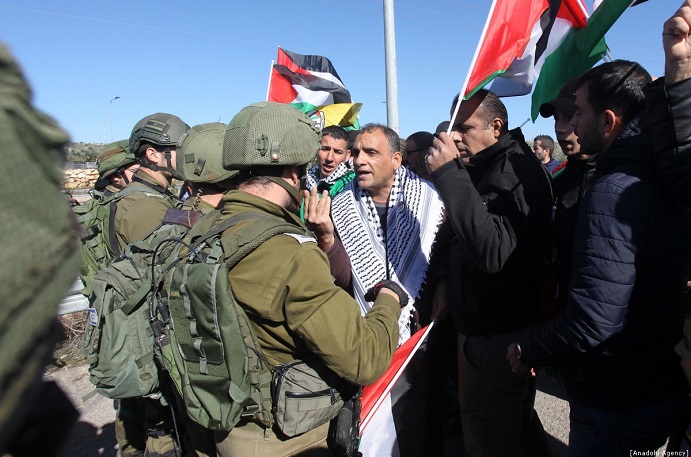
Middle East Monitor / January 24, 2020
Israeli circles have been accusing Hamas of continuing to aggravate the front in the West Bank, in order to destabilise the security situation within, against the army and the settlers. This translated into increased tensions on Israel’s part, especially as one of the reasons for the rise of Israeli fears, is its fear of a succession war over Mahmoud Abbas’s successor, as Palestinian Authority president.
In light of these fears, Shin Bet security agency recently announced the thwarting of 560 major operations in 2019, including ten self-sacrifice operations, four solider and settler captures and more than 300 shootings. The army circumvented nearly 12 Palestinian armed cells infrastructures, which had planned to carry out violent operations, using explosive devices.
This Israeli data confirms that tensions in the West Bank are increasing with the passage of time, and that the prevailing notion is that an armed operation, similar to the operation of the Dolev settlement near Ramallah in August, killing an Israeli settler using an explosive device, will succeed after the cell that carried out the operation managed to pass under the Israeli radar. However, Shin Bet’s detection of the cell that executed the operation led to a vast military infrastructure.
The Israeli army, and its intelligence services, focus on what they call the major role that the West Bank office plays within Hamas, which is responsible for directing operations in the West Bank. It is working more broadly and intensively to destabilise the security situation there, and to target soldiers and settlers. It is worth noting that some of the recent decisions taken by the Israeli political level regarding the Palestinians, only help to pour more oil on the fire, igniting further tension.
Thus, the Israeli army’s state of readiness in the West Bank has proliferated recently, in anticipation of the possibility of Abbas’s sudden absence from the political stage. This is because the succession war may result in popular resistance that slips into armed resistance, given that the majority of candidates for his succession have started to store weapons, raising serious concern in Israel.
The most important factor that will leave its impact on the security situation in the West Bank remains the Israeli elections, and the accompanying issuance of provocative messages from Israeli politicians regarding the future of the West Bank. This includes the annexation of the Jordan Valley, major settlement blocs, the prevention of Palestinian construction in Area C and other arbitrary decisions.
All of these Israeli political orientations and behaviours on the ground will only exacerbate the security tensions in the West Bank, eliciting negative reactions amongst Palestinians, and have a detrimental effect on security coordination with the Palestinian Authority, which contributes greatly to the stability of the army and settlers. This requires Israel to prepare for any surprises that may occur in the West Bank.
Adnan Abu Amer is a Palestinian academic












